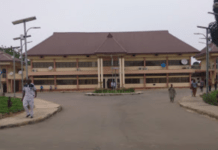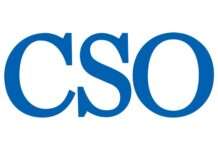PSIRS Holds Landmark Tax Summit, Charts Bold Reforms in Property and Land Administration
Plateau State has taken a decisive step toward overhauling its internal revenue generation system by hosting a historic two-day Tax Summit focused on property and land administration. The engagement, which concluded on Friday, August 22, 2025, brought together top government officials, legal experts, technocrats, development partners, and community leaders to address long-standing challenges in harnessing domestic resources.
Themed “Unlocking Domestic Resources: Strengthening the Administration of Property and Land-Related Taxes in Plateau State,” the summit underscored the importance of land as a critical driver of internally generated revenue (IGR).
Governor Caleb Manasseh Mutfwang, represented by the Secretary to the Government, Arch. Samuel N. Jatau, emphasized that the summit was not merely about taxation but about redefining governance and strengthening the social contract between government and citizens.
“Land is one of our greatest assets, yet it remains underutilized in driving development. What we are doing with this summit is to set a new tone—that Plateau must look inward, harness its resources, and build a transparent system of taxation that benefits every citizen. We cannot continue to rely solely on federal allocations. Our people deserve clean roads, running water, better schools, and hospitals, and these things require funding. Property and land taxes are not punishments; they are contributions from all of us toward building a state we are proud to call home,” the governor remarked.
He further pledged his administration’s commitment to reforms that will harmonize land administration, expand the tax net, and ensure fairness in enforcement. “We are determined to create a system that is fair, predictable, and transparent. A Plateau where citizens willingly comply because they trust that their taxes are being used wisely—that is the Plateau Project,” he concluded.
Shocking statistics presented at the summit revealed the scale of underperformance in property taxation. Despite NASA surveys identifying over one million buildings across Plateau State, only about 14,000 properties are currently captured in the tax net—representing just 1.4 percent of the state’s total building stock.
Dr. Jim Pam Wayas, Executive Chairman of the Plateau State Internal Revenue Service (PSIRS), likened the revenue gap to a medical emergency. “Revenue is to government what blood is to the human body. Without blood, the body cannot function. Plateau has been operating with just ‘six pints of blood’ when it could easily have seven or more,” he said.
Nationwide, property taxes account for less than five percent of total government revenue—far below international standards—making reform both urgent and inevitable.
Central to the summit’s deliberations was the challenge of harmonizing statutory land laws with living customary tenure systems. The Attorney General and Commissioner for Justice, Hon. Philemon Audu Daffi, emphasized that the problem was not a lack of taxing instruments, but rather the “fragmentation and visibility gap” in Nigeria’s land administration system.
“The central problem is not the absence of laws. Plateau already has a Property and Land Use Charge regime. The challenge lies in bridging the disjuncture between statutory land administration and customary tenure systems,” Daffi explained.
The Plateau Geographic Information Service (PLAGIS), represented by Mr. Sunday Bulus, showcased how digital property mapping and spatial data could transform tax administration. By integrating PLAGIS with PSIRS, property identification, valuation, billing, and collection could be automated—allowing property owners to receive demand notices via SMS or email and pay electronically from their homes.
“Data has become the new oil,” Dr. Wayas emphasized. “The question is: how do we harness it to generate wealth? That is why we are here.”
International perspectives were also shared. Dr. Titilola Akindeinde cited reforms in Sierra Leone, where locally tailored solutions have improved property taxation despite limited resources. Other experts, including Hon. Mustapha Ndajiwo and Tijjani Ahmed, presented research on taxation in Kaduna, Niger, and Ekiti States, with findings attracting interest from the Gates Foundation.
A major highlight of the summit was the inauguration of an Implementation Committee chaired by the Attorney General, with members drawn from ministries, PSIRS, local governments, and technical agencies. A seven-paper action plan was adopted, covering:
1. Harmonization of land tenure systems.
2. Capacity building for local governments.
3. Data-driven revenue forecasting.
4. Technology integration across agencies.
5. Community awareness and public education.
6. Objective property valuation reforms.
7. Updates to legal and regulatory frameworks.
Commissioner for Lands, Survey and Town Planning, Hon. Peter Nyam Gei, stressed that the reforms aim to eliminate duplication and harassment. “We want to make revenue generation a one-stop shop. Once you are given a demand notice and you make your payment, that’s it—you are done,” he said.
The second day shifted focus to the revenue performance of Ministries, Departments, and Agencies (MDAs) under the theme “Appraising the Revenue Performance of MDAs and the Way Forward.” Governor Mutfwang was represented by Commissioner for Transport, Hon. Jatau Davou Gyang.
A review of five years’ data showed chronic underperformance between 2020 and 2022, followed by a breakthrough in 2023 when Plateau achieved 102 percent of its budget and IGR rose to 34 percent. Performance climbed to 62 percent in 2024. However, mid-year 2025 data revealed that only 13.4 percent of MDAs had met at least half their revenue targets, while 63.4 percent performed below 25 percent, and 17.1 percent recorded no collection at all.
High performers included the Ministry of Information & Communication (1,243.76%), Ministry of Justice (729.43%), Jos Main Market Authority (428.96%), and Plateau State Scholarship Board (125%). Underperformers included the Ministries of Agriculture, Science and Technology, ICT Development Agency, and Health.
Recommendations included setting realistic targets, deepening automation, diversifying revenue sources (including land taxes and tourism), quarterly monitoring, performance contracts for MDA heads, and public recognition for high performers.
The summit concluded with optimism and determination. “Success means building a fair, predictable, and transparent system where citizens comply, government enforces, and ultimately everyone sees the results in better roads, water, security, and public services,” Dr. Wayas affirmed.
As federal allocations continue to decline, Plateau’s tax reform initiative may serve as a model for other states. By harmonizing land laws, integrating technology, and holding agencies accountable, the state is laying the foundation for sustainable governance and fiscal independence.
“This is not a talk-shop. We are moving beyond rhetoric to action,” one participant noted. With the Plateau Project now firmly underway, fair taxation is set to meet robust governance, unlocking domestic resources for the benefit of all citizens.












